Laurent Michel
Laurent received a B.S. and an Sc.M. in Computer Science from “Les Facultes Universitaires Notre-Dame de la Paix” (‘93) in Namur, Belgium. He later received an Sc.M. (‘96) and Ph.D. (‘99) degrees in Computer Science from Brown University.
After spending one year in industry and 2 years at Brown University as Visiting Assistant Professor, he joined the department in 2002 as Assistant Professor of Computer Science and Engineering and is now a Professor since 2017. His research interests focus on the design and implementation of domain specific languages for combinatorial optimization. In addition, he is co-Director of CSI and C3, two cybersecurity focused Centers.
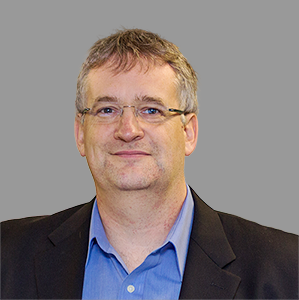
John Chandy
Prof. John A. Chandy is a Professor and the Head of the Electrical and Computer Engineering Department at the University of Connecticut. Prof. Chandy is Director of the UConn site of the CHEST center. He is also Co-Director of the Connecticut Advanced Computing Center. Prior to joining UConn, he had executive and engineering positions in software companies working particularly in the areas of clustered storage architectures, tools for the online delivery of psychotherapy and soft-skills training, distributed architectures, and unstructured data representation. His current research areas are in high-performance storage systems, reconfigurable computing, embedded systems security, distributed systems software and architectures, and multiple-valued logic. Dr. Chandy earned Ph.D. and M.S. degrees in Electrical Engineering from the University of Illinois in 1996 and 1993, respectively, and a S.B. in Electrical Engineering from the Massachusetts Institute of Technology in 1989.
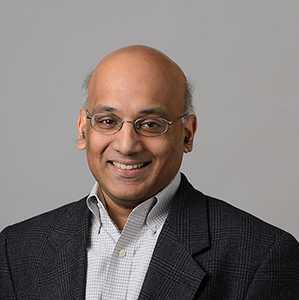
Christopher Tanner
Abstract: Language Modelling has been an important problem within Natural Language Processing (NLP) for decades; yet, only in the last decade have we witnessed Language Models so powerful that they can provide excellent results — often state-of-the-art — for seemingly every other common problem/task within NLP. The capabilities are so compelling that one may question “what can’t LLMs do?” In this quick talk, we briefly discuss foundational aspects of LLMs, spanning Masked Language Models, Auto-regressive Language Models, the concept of a Transformer, and the benefits of prompt engineering.
Dr. Chris Tanner is the Head of R&D at Kensho — a 100-person ML/NLP company headquartered in Harvard Square — and he holds a joint faculty appointment at MIT, where he teaches NLP and Machine Learning. Currently, Dr. Tanner’s research mostly concerns various aspects of large language models, including tokenization, reasoning, long-form question answering, and alignment. Before joining Kensho and MIT, he spent three years teaching full-time at Harvard’s Institute for Applied Computational Science (IACS), which centers around two graduate programs. Dr. Tanner received his PhD in Computer Science (NLP) at Brown University under the mentorship of Prof. Eugene Charniak. Before earning his PhD, he worked at MIT Lincoln Lab as an Associate Staff NLP researcher from 2009-2012. Outside of research, he enjoys woodworking, running, and going on challenging hikes

Kishore Kumar Reddy
Abstract: Adoption of Artificial Intelligence (AI) has been fast and universal in various industries with the exception of the aerospace and defense (A&D) sector. Given the current state of the AI technology (driven mostly by information technology companies) and the safety critical nature of A&D sector products/processes, AI is not readily amicable for adoption in most A&D applications. In this talk, we will discuss how RTX Technologies Research Centers (RTRC) is partnering with RTX business units, external customers (Department of Defense/Energy), and universities to address these AI gaps to help increase the adoption of this powerful technology at RTX. We will start by presenting RTRC’s journey into AI, followed by the core AI capabilities developed at RTRC and transitioned to RTX business units over the past 12 years.
Dr. Kishore K. Reddy is associate director of research at Raytheon Technologies Research Center, responsible for R&D in Artificial Intelligence (AI). He founded and heads the AI team to solve some of the world’s toughest problems in the aerospace and defense industries. He is a co-inventor on 15 patents and has authored over 25 peer-reviewed publications. He is often a guest speaker, serves as a panelist at conferences, and sits on multiple advisory boards. Kishore earned his Ph.D. in Electrical Engineering from the University of Central Florida and his M.S. in Electronic Systems and Engineering Management from Fachhochschule Südwestfalen, Germany.
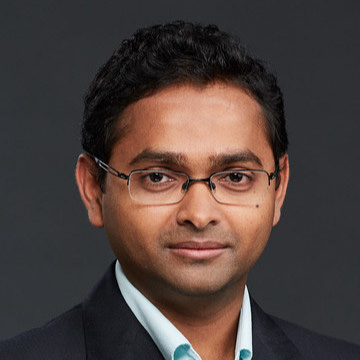
Seda Arat
Abstract: Artificial intelligence has increased efficiency and effectiveness of drug discovery and development (DDD) by lessening the human workload as well as reducing DDD cycle times. There is certainly a clear and working connection between DDD, AI and business decision-making, and I will highlight some examples of AI use in different stages of DDD: (1) In which cases does AI work like a charm so it helps bring life-saving medications to the market more quickly and cost-effectively? (2) In which areas does AI work poorly? (3) Are there any areas that are not ready for AI use?
Dr. Seda Arat is a senior principal computational toxicologist at Pfizer Drug Safety Research & Development focusing on safety applications of next generation sequencing data analysis, bioinformatics, and machine learning. Her recent research aims to develop knowledge graphs and graph-based predictive models for safety signal detection for safety risk management, collaborating with IBM. Prior to joining Pfizer, Dr. Arat completed her postdoctoral training at The Jackson Laboratory in the field of systems/computational biology and machine learning. She received her PhD in applied mathematics from Virginia Tech, and she was a data scientist intern at the University of Connecticut Health Center and GlaxoSmithKline (GSK) during her PhD studies. Dr. Arat has also been involved in numerous volunteer activities for the Society of Industrial and Applied Mathematics (SIAM), Society for Advancement of Chicanos and Native Americans in Science (SACNAS), Pfizer Latino Community and STEM Hub for Industry Networking and Exchange (SHINE) mentorship program. She is currently a board member of Juvenile Diabetes Research Fund (JDRF) Greater CT and Western MA Chapter.
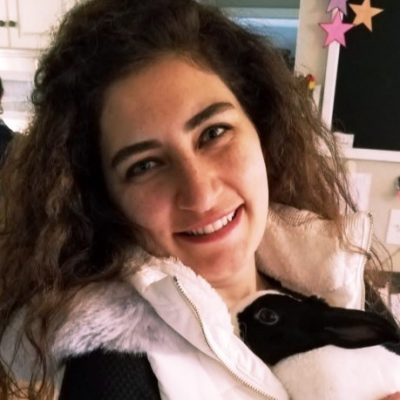
Serdar Kadıoğlu
Abstract: In recent years, the field of Artificial Intelligence (AI) has undergone a significant transformation. This has opened up new opportunities for the enterprise as well as new challenges. In this talk, we take a broader perspective and explore the decades-long progress behind the evolution of AI from classical techniques to modern and generative AI. We highlight the strengths and weaknesses of each paradigm, discuss how new disruptive technologies are changing the landscape, and provide insights on how to approach adoption in the industry.
Serdar Kadioglu is Group VP of Artificial Intelligence at Fidelity Investments and Adjunct Assoc. Prof. in the Dept. of Computer Science at Brown University. Previously, he led the Advanced Constraint Technology R&D group at Oracle and worked at Adobe. Dr. Kadioglu’s algorithmic research is at the intersection of Artificial Intelligence and Discrete Optimization with practical interests in building robust and scalable products while contributing to the open-source ecosystem.
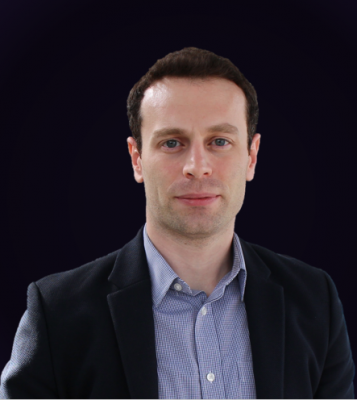
Michael Storiale
Abstract: Consumer choice powered by the opportunity to research, read reviews, and comparison shop has been an ever-more important pillar of digital shopping over the past two decades. As generative AI gains momentum, the way customers search for what they need will dramatically change, impacting how retailers, FIs, and service providers sell their products. How will hyper-specific prompts with personalized answers impact search engine marketing? Will plugins to generative AI engines be the tools that brands use to influence shopping decisions and become the next wave of digital products we build? How will the movement to a single answer shift consumer beliefs?
Key Takeaway: Open your mind to the new products that can be built leveraging the power of generative AI and be able to articulate a plan for how it will affect your products moving forward.
Mike is a Technology Innovation leader at Synchrony, with responsibility for the organization’s Product Incubation Group, R&D Technology Centers, and cross-functional Innovation Stations. Focusing on trends further out on the horizon, the team takes a human-centered design approach to find product / market fit for new solutions in fintech. Since joining Synchrony, Mike and his teams have led rapid builds of numerous MVPs, co-developed products with major tech companies, and provided expert technology guidance on various Ventures & M&A opportunities. Recent work from the teams has advanced Synchrony’s exploration into artificial intelligence, data science, cloud computing, blockchain, and digital payments. Mike graduated from Wagner College with a B.S. in Marketing & International Business and obtained his MBA from the Barney School of Business at University of Hartford. He currently serves on the Barney School of Business Board of Visitors and as a professor of Innovation & Economics at Brandeis University.
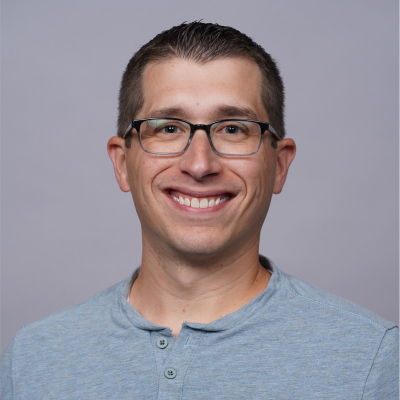
Dan Murphy
Dan Murphy is the SVP, Deputy Engineering Leader at Synchrony. He leads an amazing team of engineers who are responsible for building and supporting Synchrony’s customer facing applications on the Web, iOS/Android apps, and new channels like Alexa. He was a founding member of the Innovation Station and is a key leader in driving the culture of engineering at Synchrony. He and his team of engineers foster innovation through efforts such as Money20/20, Hackathons, Senior Design Projects and Bolt sessions. He is also leading the UConn Synchrony relationship and is the Executive Sponsor of the Digital Technology Center at UConn Stamford. Dan holds a Bachelor’s degree in Management Information Systems from the University of Connecticut.
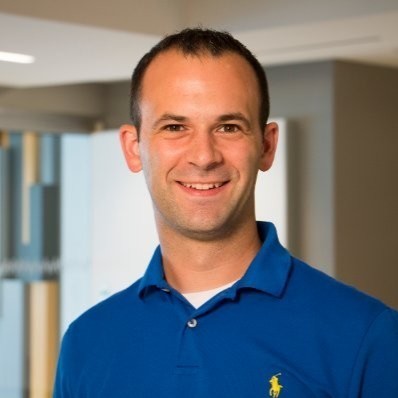
Michelle M Buxton
Abstract: This past year we’ve seen an explosion in the advancements, and uses, of Generative AI: a specific type of AI designed to generate new and novel data. In this talk I will provide some reasons for these advancements and discuss the opportunities, and challenges, that Generative AI presents today.
Michelle graduated in 2002 with a PhD in Astronomy & Astrophysics from the Australian National University. In 2015, Michelle transitioned from Academia to the Insurance industry when she landed a role with the Travelers Innovation Center team, working on ML and AI models related to image and text analytics as well as anomaly detection. In 2019, Michelle moved over to Personal Insurance R&D where she continued to use AI on text-related problems such as sentiment analysis of customer survey responses, and classification/summarization of chat and phone call conversations. Michelle’s current role is the AI Practice Lead for Emerging Tech where she continues her research into AI for Travelers, identifying and enabling AI opportunities and solutions for business problems.
